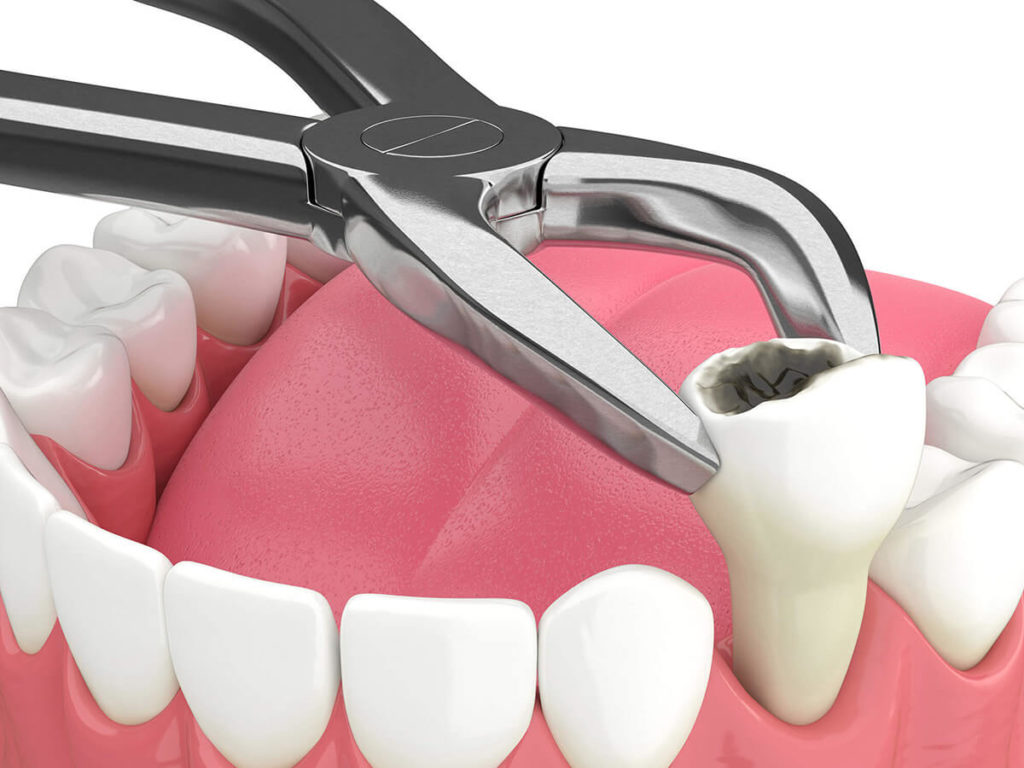Tooth Extractions
Our priority is to preserve and care for your natural teeth, but sometimes tooth removal is the best course of action. We strive to ensure that the extraction procedure is simple and allows for a speedy recovery.
Tooth Extractions in Tinley Park, IL
Tooth extraction is generally a quick and simple procedure. To ensure your comfort, we administer local anesthesia to the extraction location. The most crucial phase is the recovery process. Our primary objective is to facilitate proper healing immediately after the tooth extraction. To achieve this, we will provide you with a gauze pad to bite down on for approximately 30 to 45 minutes, to control bleeding and allow for a blood clot to form. It is essential to handle the blood clot with extreme care for the next 24 hours. To manage swelling that may occur, we recommend applying an ice pack to the outer cheek. Gentle rinsing with warm salt water is also beneficial in maintaining cleanliness in the extraction area.

-
How do I prevent dry socket after tooth extraction?
When you have a tooth extracted, you develop a blood clot shortly after the surgery to begin the healing process. If this blood clot becomes dislodged before your mouth has fully healed it can cause pain, this is called dry socket.
Six tips for avoiding dry socket are:
- Avoid straws or anything that creates a suction movement of air and cheek muscles.
- Avoid smoking tobacco as fast inhalation can dislodge your blood clot and the chemicals may prevent healing or cause an infection.
- Eat soft foods only like applesauce, yogurt, and mashed potatoes for the first one or two days.
- Inquire about any medicines you’re taking to ensure they don’t interact with the healing process.
- Use proper oral hygiene to keep your mouth clean and consider an antibacterial mouthwash.
- Follow your doctor’s instruction on proper oral care to improve recovery time.
-
When and why are wisdom teeth removed?
Wisdom teeth are the last set of teeth to develop at the back of the mouth. They typically begin to appear during the late teenage years or early twenties. Due to their tendency to grow at an awkward angle and potentially cause crowding by coming into contact with surrounding teeth, the majority of individuals will have to have them extracted. As a result, approximately 85% of adults ultimately undergo the removal of their wisdom teeth.
-
What causes the need for tooth extraction?
Tooth extraction involves removing a tooth from its socket. This procedure is typically performed when a tooth has suffered significant damage from decay or breakage, and passes the point of being able to be repaired.
There are various other reasons for tooth extraction. The presence of extra teeth that obstruct the normal growth of other teeth, instances where baby teeth do not naturally shed in time for permanent teeth to emerge, extraction as part of orthodontic treatment, and the removal of wisdom teeth for medical purposes are reasons extraction may be needed.
More questions?
If you have more questions about tooth extractions, please contact our office and we will be happy to discuss further.

